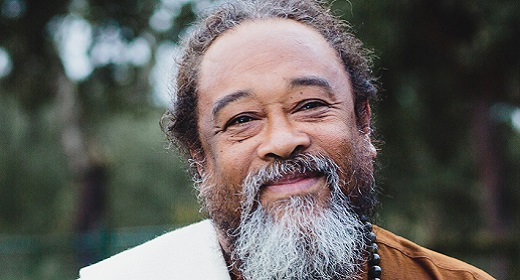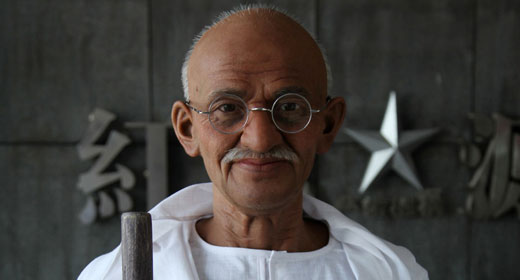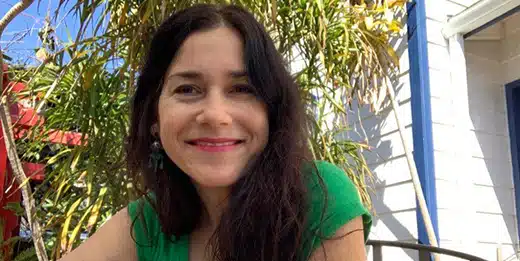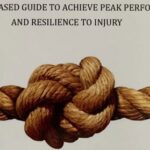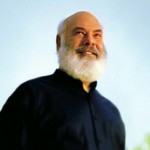by:Janet Attwood”Judge your neighbor, write it down, ask four questions and turn it around” is the simple formula Byron Katie has used to give freedom from suffering, unhappiness, and pain to hundreds of thousands of people throughout the world. Katie, as she is generally known, has been hailed as “A spiritual innovator for the new millennium” by Time magazine and as someone who “burns away all illusions” by the Times of London. She is the author of the bestselling books, Loving What Is and I Need Your Love, Is That True? Her story is extraordinary and the simple process of inquiry she calls “The Work” has been remarkably effective for people of all backgrounds and all walks of life. Chris and Janet Attwood had the good fortune to work personally with Katie in the year 2000 and found her to be one of the most enlightened, powerful and loving people alive today.
Katie, as she is generally known, has been hailed as “A spiritual innovator for the new millennium” by Time magazine and as someone who “burns away all illusions” by the Times of London. She is the author of the bestselling books, Loving What Is and I Need Your Love, Is That True? Her story is extraordinary and the simple process of inquiry she calls “The Work” has been remarkably effective for people of all backgrounds and all walks of life. Chris and Janet Attwood had the good fortune to work personally with Katie in the year 2000 and found her to be one of the most enlightened, powerful and loving people alive today.
Janet: Tonight, I am honored and privileged to introduce you to one of my greatest teachers and mentors, Byron Katie. In my experience, Katie is one of the most enlightened beings in the world today. I know hearing this, she would say something like, “Honey, I don’t know anything about that. I just know the difference between what hurts and what doesn’t,” and that’s what she teaches people all over the world – how to undo the thoughts, concepts and beliefs which hurt – through the simple, yet powerful process of investigation she calls The Work.
Learning this process changed my life dramatically for the better, as it has for people around the world, and I’m thrilled that all of you will get to experience this process tonight.Katie was a businesswoman and mother living in a small town in the high desert of California when her life went through a dramatic transformation from depression and unhappiness, verging on suicide, to the embodiment of love she is today.
I hope she’ll share some of this with all of you.
This evening, I’m also honored to introduce my co-host, David Riklan. David is the founder of www.SelfGrowth.com, one of the most popular personal development websites on the Internet. David has prepared an e-book called The Top 100 Experts on Self Improvement, and quite appropriately, one of the chapters in that book profiles Byron Katie.
Before I turn the call over to David, I want to mention that tonight’s interview will be a little different than others we’ve done. After David asks Katie a few questions, Katie will take David through The Work on an issue he feels strongly about, related to the relief efforts for Hurricane Katrina.
I urge you to stay on the line and listen to the process, whether you agree or disagree with David’s feelings about what’s going on. If you will stay open and listen to Katie as she takes David through the process, you will discover a new way of looking at the world, which could change your life.
David, thank you so much for being with us, and I want to thank you in advance for your willingness to deal with some difficult issues for the benefit of all of us. Now I’ll turn it over to you.
David: Thank you, Janet. Katie, this series is focused on passion and the part passion has played in the lives of successful people like you. Those who know you would say it appears your greatest passion is knowing the truth in every moment. Can you tell us the story of how this passion arose in you as you discovered the self-investigation process you call The Work?
Katie: The passion, it seems, as I look back in hindsight, was always there. I was so depressed for more than a decade that I was unable to even brush my teeth – the simplest things – I couldn’t even get out of bed. I began to sleep on the floor because my self esteem was so low. That is passionate. I was passionately suicidal. Then one morning, as I lay sleeping on the floor, a cockroach crawled over my foot and I opened my eyes and in place of all of that darkness was a joy that I can’t describe.
Then my passion, it’s as though it just switched, and fairly immediately, I began to help others see what I learned in that moment, and that is that when I believe my thoughts, I suffer, but when I question my thoughts, I don’t suffer. What I love about this is that I’ve come to see that this is true for every human being.
David: Can you tell us some specifics? How has The Work changed your life?
Katie: What is so funny is those 40-odd years (I was 43 when I had the experience I just described), up to that point, I was so good at giving people advice and pointing the finger and no one listened to this advice. After that moment on the floor, when I could see the cause of all my problems, I began to be very quiet when it came to advice giving. In fact, I stopped and that has stopped for 18-plus years now.
What stopped it was I began to hear the advice in my head for other people, and I turned it around, which is part of this process that I offer people, and I could see how ridiculous and how, so often, that advice was impossible – not only for them, but for me. I wasn’t able to take my own advice.
That gave me my life’s work and that was to take my own advice, wherever possible, and when it made sense to me. I’ve been following my own mind and it’s very enriching to know what is and is not possible for myself. What’s happened, I find remarkable. People from all over the world are now asking me for advice and of course, I still can’t give it because it’s for each of us to discover for ourselves what’s right for us. That’s how my life has really changed.
David: What’s interesting about that is that I’m in the mode of always giving people advice. I think most people are in the mode that it’s easier to try to solve other people’s problems than to figure out your own problems and to question yourself. From what I’ve read, The Work, in terms of the questioning and self investigation, enables us to turn a lot of that around.
Katie: Yes, and thank goodness there are people like you who do give sound advice. We all have our way and it’s all valuable. My advice, I’ve come to see… the parts that I can live are so powerful that the example I live, I think, is very helpful for people. I know it’s helpful for me.
David: I just want to share something about Katie. There are a lot of people in the self-help/self-improvement industry who talk about different ways to improve your life. Katie is somebody who walks the walk. From everything I know and have heard about her, she’s someone who lives what she teaches. She sets a powerful example of what you can do in terms of changing yourself.
Katie: It certainly doesn’t take courage to do that; I think it takes courage not to. I’ve found that it’s so much easier to walk my mind out, that right mind, to walk it out and live it out, because it gives us a whole internal life to follow, and then cause and effect – that’s what we deal with here.
David: I want to jump into some of the specifics. Let’s step back to your first book, Loving What Is. It was a best-seller with great content and great methodology. Loving What Is is the concept of the book and I want to reference what’s been going on with Katrina in the Gulf Coast.
Hundreds or thousands of people in the Gulf Coast have lost their lives or been displaced from their homes. Will you help our listeners understand how anyone could love such a disaster with such devastating effects?
Katie: It’s simple for me now – I watch, I’m glued to my television and to the news and watching these people on the rooftops. They’ve lost their loved ones and they’re in attics and it’s hot and there’s no food or water. There’s so much pain and suffering. I watch very closely as these people teach me how not to do that. These people teach me. It’s like what is, is. What is reality, it is what it is, and there’s nothing we can do about it. What is, is – always the story of the past.
What I love about the past is it’s over. Now, how can it serve me from here and how can I help? That’s what I love about the past; it is the teacher. It’s a waste if I cannot see it with my eyes wide open, to see that reality and let it serve me now. So many of us leave it up to other people, rather than to be a student of life, a student of the past and use it so all of that pain comes out for good.
David: Very powerful. I’m looking at it and thinking about some of my feelings relative to what’s going on there and also relative to other things in the past. For me, in a number of situations, it’s always hard to let go of the anger and frustration in the past. Are you going to be able to take us through some of the process in terms of how we could take the past from this emotional attachment to a point where we can learn from it? Is that part of the whole process?
Katie: Yes, that is a part of the process, and The Work, these four questions and turnaround, is experiential, so it’s up to each of us to walk ourselves through it and see how we come out emotionally and how those emotions change. I know that I can see and experience the most horrendous pains with people who come to me one-on-one to do The Work. Being a mother and grandmother, the things that come at me, I have come to see that even sadness itself is a mind of tantrum. It’s the war with what is, it’s the war with reality.
Again, reality is the past. What can I do in this moment now? As I continue to question my mind, I continue to live in this free space and this moment, as a collective intelligence that knows how to respond. Sadness, this emotional sadness, this war with reality and what is, it costs us a lot of energy and power that we could be putting to change. It also teaches fear in the world, and panic.
David: I definitely see that. Let me jump ahead to something that you’ve been known to say. One of the things I read in your book and I know you say is: “Judge your neighbor, write it down, ask four questions and turn it around.” Why do you encourage people to pass judgment on others?
Katie: I’ve talked about it a little. We could say, for example, that with my children, I may think,“My son doesn’t listen to me.” The next thought is, “How can he be so ungrateful?” Or, “Why can’t he hear me?” The mind just goes crazy with that, but if I write that down and really look at that concept, “My son doesn’t listen to me,” and I walk myself through that process and turn it around, and this is the short version, it leads me to listen to him and to listen to myself.
It leaves me very humble in the experience as I realize that I don’t always listen to people at the level that I would like. Sometimes my mind is split, it’s somewhere else and I’m unable to. Maybe I’m spaced out, but until I really look at it, then I hold my child as though he were the enemy, as though he’s doing something wrong. I’ve come to see very quickly that when people don’t listen to me, it’s because they don’t need to.
David: So “judge your neighbor” is something that really provides the value when you turn it around?
Byron Katie: And question it, because we’ve come to see that everything is exactly the way it’s supposed to be, up to this moment. Do I have the power and the clarity and the love in my heart and the openness and the energy to benefit humanity from this place now? That benefits me.
David: Many people who are drawn to The Work are struggling from things like rape, incest, divorce or death of loved ones. I understand that the best way for anyone to really appreciate the value of The Work is to experience it.
As part of this interview, I was asked to prepare a worksheet that is the starting point for stepping through The Work, so you can take me through the process and allow people to see how it works. I sent you the worksheet, so can we go through that now?
Byron Katie: Yes, let’s do these. If you’d read it, then people can catch up with some of the thoughts that millions of people are considering now. I’ve come to see that there are no new stressful thoughts. You think them, I have thought them, and the whole world has thought them. They’re very powerful.
David: One of the things I mentioned earlier was Katrina. I’ve been glued to the television as well and I’ve been extremely angry with what’s going on with President Bush and the government for their failure to help the people in Louisiana in a timely manner.
I’m just outside New York City and I saw what happened with 9/11. I’ve been very upset with it, very angry and frustrated with Bush. Many of the people have died, I feel, because President Bush and FEMA have really failed to take proper action to ensure the safety of the people in the aftermath of the hurricane. As I watch television every day, literally, it’s on 24 hours – every time I turn it on, I get angrier and angrier. That’s the starting point for one of the things right now.
Byron Katie: I see that one of the things you expressed is that you want President Bush to admit he screwed up and you want him to change things at FEMA.
David: Absolutely, yes.
Byron Katie: The Work is so simple. It’s four questions and a turnaround. You want President Bush to admit that he screwed up.
David: Absolutely. President Bush and the head of FEMA, both of them, absolutely they screwed up.
Byron Katie: How do you react when you think that thought and he does not admit it?
David: Frustrated that once again, someone who is supposed to be taking responsibility for our country and really “the buck stops here,” in which I’m a strong believer, isn’t doing it.
Byron Katie: So you become frustrated and your mind begins the “becauses” and the pictures in your head begin to show all of the proof that you’re right. That’s the mind’s job. It will find all of the proof and it will be valid. That’s not right or wrong; it’s just how the mind works. Does that thought bring peace or stress into your life as you’re glued to the television and you think, “I want President Bush to admit that he screwed up and he does not”?
David: That brings more stress; it’s more mistakes.
Byron Katie: This is the fourth question. Who would you be, watching television, without the thought, “I want President Bush to admit that he screwed up”?
David: I’d probably be more sympathetic to helping and less angry about what the problems are and what the causes were. Who would I be? Probably, someone more sympathetic.
Byron Katie: It’s nice to fit in these four questions, every one of them. They’re meditation. They are introspective. We become still and watch these answers as they surface from within us. Ask four questions, turn it around: “I want President Bush to admit that he screwed up.” What is the opposite of that?
David: The opposite of “I want President Bush to admit he screwed up”? I guess the opposite of him would be me?
Byron Katie: Try that.
David: I want to admit that I’m trying to do the right things, that I’m doing the right things – or that I screwed up?
Byron Katie: No. If I have “I want President Bush to admit that he screwed up,” I turn that around. “I want me to admit that I screwed up,” and then I become silent again and I look in my life. Where have I screwed up and not admitted it? I sit in it and I become very open and courageous with it. Where is it that I screwed up that I have not admitted?
As these things surface, I do it quickly. If I have to call someone that I haven’t known and track them down after 30 years, I may call that person and admit it. I clean up my life. Where is it that I’ve done it today? Where is it that I haven’t admitted it? I begin to clean up my own life because I don’t have the power over George Bush, but if it’s such a noble thought, let me live it.
If it’s better for the world that he do that, why don’t I make my little raindrop and begin from there? If I can’t do it, how can I expect him to do it? I can’t. I’d like to see how far I get with that one, and oh my, what a journey. It begins with one and that’s very powerful.
I was agoraphobic and paranoid, just radically so, and this has brought me out, the power of one, and how that passes on and on and on. I really want people to get the power of this and how we can take the power back when we don’t have the power to shift a President’s mind. Can you find another turnaround to “I want President Bush to admit that he screwed up”?
David: Absolutely. I’m just taking in what you’re saying right now. Part of my anger is that I feel he hasn’t taken responsibility, and as you’ve been talking, I’ve been thinking, and I haven’t before, about a number of areas where I haven’t taken responsibility.
Byron Katie: Isn’t it true? Where is it that I don’t take responsibility in my life? Hear what you say, “I want him to change things at FEMA.” He has the talent to change things at FEMA. Is that true? Can you absolutely know that he has the talent or imagination or capability or experience to change things at FEMA? When we think, “I want him to change things at FEMA,” is that true when I consider these ideas?
David: Is it true? Yes. Does he have the talent, the ability or the power? Do I know that for sure? No.
Byron Katie: Not knowing that for sure, are you sure you want him to jump in there and try to change things at FEMA? He has changed things at FEMA, and we see reality in front of our face when we look at the conditions after the storm. How do you react when you want him to change things at FEMA and they’re not changed and he doesn’t even admit what you want him to admit?
David: Two things come to mind. One is still frustration and anger, but then I’m immediately following through on what you’re saying. Let me turn that around on me in terms of things that I’ve tried to change.
Byron Katie: Yes, and how frustrating that can be and how hopeless sometimes.
David: There are things that I’ve beaten my head against a wall trying to change that I’ve been unable to.
Byron Katie: Yes, and we ask them to do what we can’t accomplish ourselves, in our own lives sometimes. Specifically, “I want him to change things at FEMA,” turn it around, “I want me to change things at FEMA.” Now, let me sit with that. Let me exercise all of my power. “How can I change things at FEMA?” Am I even making an attempt? Am I using my abilities to do that, or is it that I have and have not volunteered?
Where is it that I can have some kind of an effect in that area? “I want him to change things at FEMA.” Is that true? Yes. I want him to change things at FEMA. How do I react when I think that thought and things aren’t changed? I can become very frustrated, confused, hopeless, un-empowered and stressed out. Who would I be without the thought, “I want him to change things at FEMA”? Much more peaceful, and in that, much more creative and clearer.
David: Yes.
Byron Katie: Around “I want me to change things at FEMA,” let me just be still and continue to watch the news and see, when a space does open up where I do have the capacity and maybe experience or enlightenment to make some kind of shift.
David: Each of the things you’re mentioning is pushing me. My general mode is that if things or people around me aren’t behaving and doing the things I want, I’m in a mode of changing myself and also trying to change other people. What you’re saying and forcing me to think about is that it’s not healthy to be in the mode of trying to change other people.
Byron Katie: It’s not for me, simply because I’ve come to see that I can’t. I can’t. Then when they do change, I think, “I did it.” How does that serve? It just pumps me up again. Do I need it? No. I don’t have time for it. I need the genuine and the pure because that’s where we are the most creative and the most helpful and the most selfless.
David: I can see the value in looking that way. Can we step through, slowly, what the process is? We talked about judge your neighbor, write it down, ask four questions and then turn it around. Can we step through what you’re doing with me right now? I think it’s powerful and I want to make sure everybody’s getting the four questions, the specifics of what we’re doing, so they can walk away and start the process of taking a look at it for themselves.
Byron Katie: Good, and you’ve written one here: “I need President Bush to make my country safe.” You need him to make the country safe. The first question is: “Is that true that you need him to make the country safe?”
David: Is it true? I need the government. I need him. The President, for me, represents the government. If you want to point to one person whose job it is, for me, one of the prime things that the government serves is to make my home, my country, safe. Is it true? Do I need them to do that? Yes.
Byron Katie: Okay. The second question is: You need government to make your country safe; can you absolutely know it’s true that that is what you need to be safe?
David: No. I can’t absolutely know that it’s true, no. I believe it’s true, but can I absolutely know that that’s the only way for me and my family to be safe? No.
Byron Katie: This is the third question: How do you react when you think, “I need government to make my country safe,” and you’re watching television and you see Katrina and the aftermath?
David: I think two thoughts. When I think that and things are going well, I think it’s great, but when something’s gone wrong, when there’s a problem, an issue that is impacting me directly or people I know, then it creates stress, and already there’s enough stress. It’s adding additional stress when I see that, then the stress of what can I do to help? First, I think two things – I do what I can – but I think why aren’t they doing what their job is?
Byron Katie: I have found there are only three kinds of business in all of the universe: mine, yours and God’s. I look at whose business is the country. This works with the three kinds of business. If I am mentally over there running the country, the government is running the country, there are two of us over there and there’s no one running my country, right here in my mind and in my home with my family, children and grandchildren. I’m over there with the government and there’s no one here.
If I’m smiling at my grandchildren, there’s no one conscious here; there’s no one present because I’m in Louisiana and there’s no one here for me. There’s no one here for my grandchildren, so what’s happening to my government, in my head and in my life, right here? How effective is that just in the moment? When I’m frustrated, I take it out on them. “I need government to make my country safe.” Who would I be without that thought? That’s the fourth question.
David: I’d be someone – you mentioned mine, yours and God’s – focusing on my life.
Byron Katie: My business right here, right now. What is going on in my home, my government and my mind? “I need government to make my country safe.” Turn it around. We’ve gone through four questions, now we’re turning it around. This is where we get our power back. “I need government to make my country safe,” turned around.
David: I need me to make my country safe.
Byron Katie: Yes.
David: I need me to focus on it versus worrying about his job and his business. I need to really focus on my business.
Byron Katie: Yes. What can I do for my country to make it safe? What can I do for my children to make it safe? What are my words as I’m watching television? What am I teaching my children as they listen, as I discuss it with my family? Through my frustration or my anger, what am I teaching them, that it’s government’s responsibility and not mine? It’s not right or wrong, it’s just to note it.
What is going on in my own mind when I am putting blame out there without doing equal time in my whole life? Everything we see is how we teach us, and it gives us the power to run a really clear and peaceful world from where we are, and that is not a small thing. That is not a little thing because everyone around us takes it on.
We’re always teaching; it’s just what are we teaching? It’s not an option that we’re teachers. Every human being is a teacher, just what are we teaching? Let’s be aware of it. If I am fearful, I teach my children fear. If I am empowered, I teach my children empowerment. What kind of teacher do you choose to be?

